How to apply for social insurance number in Canada ?

Table of Contents
As soon as you arrive in Canada, the first thing you need to do is get a Social Insurance Number (SIN). You can’t legally work without it. To identify you in Canada, government agencies (federals and states) use your SIN number. These 9 digits allow you to receive employment, tax payments, and/or government benefitsIn this post, I will discuss applying for SIN number and documentation requirements based on personal experience and research.
Documents required to applying for SIN number
To apply for a social insurance number, you will need:
Basic documents to prove your identity and legal status in Canada:
- If you are applying online, you must provide a clear and easy-to-read electronic copy of the document.
- Applying by mail, you must send the original as it will be returned to you by mail.
- For in person, you must bring it with you.
- If you are a permanent resident, you can provide a document issued by the following Coding Excess Rate (ICRR):
- original permanent resident card or
- Confirmation of Permanent Residence (CPR) and (i) passport or (ii) state/territory issued ID card (health care card, driver’s license).
Temporary Residents
If you are a temporary residence, you can provide documents issued by the following Coding Excess Rate (ICRR):
- Original work permit or
- Original Study Permit stating that you are “able to work” or “to be accepted to work. It is free to add these terms.
Supplementary documents for identification:
o If you are applying online, you must provide a clear, easy-to-read electronic copy of the document.
o If you are applying by mail, you do not need to provide this document. However, you must complete and sign the SIN application.
o If you apply in person, you must bring it with you.
o Documents must include your legal first and last name and date of birth. Examples of acceptable auxiliary documents include:
- Passport (Canadian or foreign)
- State or territory ID card or driver’s license
- Other government issued identification cards.
Address Proof
- Proof of Address Applicant’s first name (last and given name) Includes the applicant’s address
- If you are applying online, you must provide a clear, easy-to-read electronic copy of the document.
- If you are applying by mail, you do not need to provide this document. However, you must complete and sign the SIN application.
- If you are applying in person, you do not need to provide this document.
- Examples of acceptable address proofs:
A letter from the agency or agency providing the applicant’s mailing address. Institutions/organizations and applicants are required to sign a letter confirming the mailing address.
- employment contract with address indicated,
- Any document issued by the school, college or university with your address indicated,
- bills (communication providers, cable providers, utility providers, etc.),
- Residential rental contract / lease,
- Letters or documents from financial institutions (bank statements, credit card statements, mortgage contracts or statements, etc.),
Different Name ?
You should provide the original legal document if your name is different from your actual name appears in the main document, explaining the disagreement (marriage or divorce certificate, adoption document, etc.).
You could also provide the following information if the document is not in French or English,:
- French or English translation of documents
- Affidavit or proof signed by the translator.
Please feel free to apply in person if you are unable to apply online or by mail.
The original document provided will be returned. You can find a Service Canada office near you here.
For postal SIN applications, original documents must be mailed and Service Canada is not responsible for any loss of documents. You would more likely to receive your SIN within 20 business days from the date your application is received.
Related post: https://immigrants101.com/express-entry-step-by-step-process/
Keep your SIN confidential
Anyone who has your SIN can use it carelessly to obtain your personal information. Therefore, it is important to disclose your SIN only when necessary. The most common uses of your SIN are your employer, income tax information, and financial institutions where you receive interest. Or income and government agencies. The primary document is the official document proving your identity and identity in Canada.
Important
If you are applying in person or by mail, you must provide the original basic documentation. Photocopies are not allowed.
If you are applying online, the digital copy of the document should be clear and easy to read. In case you have identity information on both sides, you must provide both sides of the document.
When there is a slight difference between the information provided in the online application and the information displayed in the primary document, that information will be entered into the social insurance register as indicated in the primary document.
Conclusion
Applying for a SIN number is a very easy and straightforward process. I would recommend applying in-person as it is a faster way to get your SIN if you are planning to start work/job within a few days after landing in Canada.















